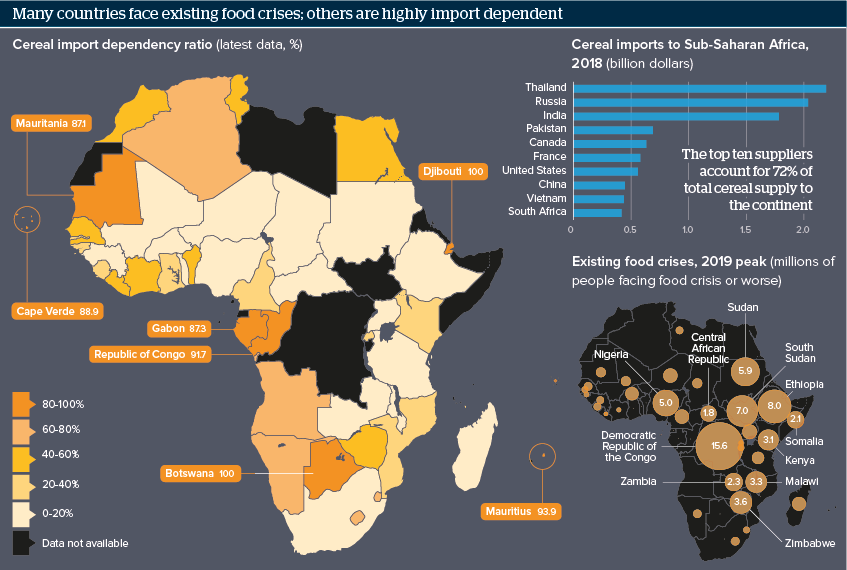COVID-19 will complicate African food security picture
The pandemic’s secondary effects on socio-economic conditions in Africa may be as dangerous as the health effects
Source: FAOSTAT; WFP; ResourceTrade.Earth; World Bank
Outlook
In mid-April, the World Food Programme (WFP) warned that COVID-19-related socio-economic disruptions could see the number of food insecure people worldwide almost double to 265 million. A significant portion of this impact could affect Africa, which already accounts for 73 million (54%) of the world’s current 135 million food insecure people.
Economic downturns and supply chain disruptions will aggravate existing food crises but may also affect areas that do not traditionally face food shortages, as major food importers are left vulnerable.
Such vulnerabilities are heightened given Africa’s heavy dependence on imports of cereals -- which account for roughly 60% of the continent’s daily energy intake -- from a handful of sources, some of which have already reduced supply.
Impacts
- Global food availability is currently acceptable and a major crisis is therefore avoidable with appropriate policy coordination.
- Export restrictions, stockpiling or bottlenecks may disrupt supply to import-dependent nations or those with limited trade routes.
- Economic downturns and rising poverty may reduce purchasing power, even as prices rise due to supply chain concerns.
- A major desert locust plague in East Africa could hit West Africa in the second half of the year, threatening food security for millions.
See also
- Africa remains in a precarious COVID-19 position - May 22, 2020
- Pandemic to deepen food insecurity beyond 2020 - May 13, 2020
- More graphic analysis
